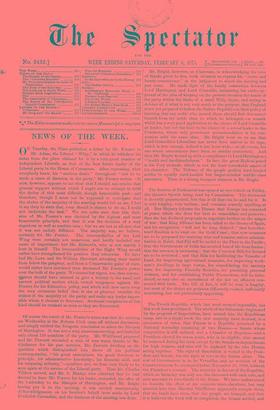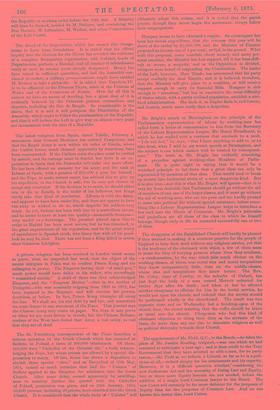The French Republic, which last week seemed impossible, has this
week been proclaimed. The whole of the Orleanists, frightened by the progress of Imperialism, have moved into the Republican camp, and in a single week the new majority have decreed, in a succession of votes, that France is a Republic, governed by a National Assembly consisting of two Houses—a Senate whose composition is still unfixed, and a Chamber of Deputies—and a President elected for seven years, who is re-eligible, who cannot be removed during his term except by the Senate on impeachment for high treason, and who will be replaced by the two Houses acting together. The right of dissolution is vested in the Presi- dent and Senate, but the right of veto in the Senate alone. The seat of Government is to be Versailles, and no revision of the Constitution can be attempted before November 20, 1880, without the President's consent. The majority in favour of the Republic, which on Saturday was only one, has increased with each vote, and now amounts to two-thirds of the House. We have endeavoured to describe the effect of the separate votes elsewhere, but may mention here that Marshal MacMahon apparently accepts them, that the funds have risen, that the people are tranquil, and that it is believed the work will be completed, the Senate settled, and the Republic in working order before the 15th inst. A Ministry will then be formed, headed by M. Dufaure, and containing the Due Decazes, M. Laboulaye, M. Wallon, and other Conservatives of the Left Centre.



































